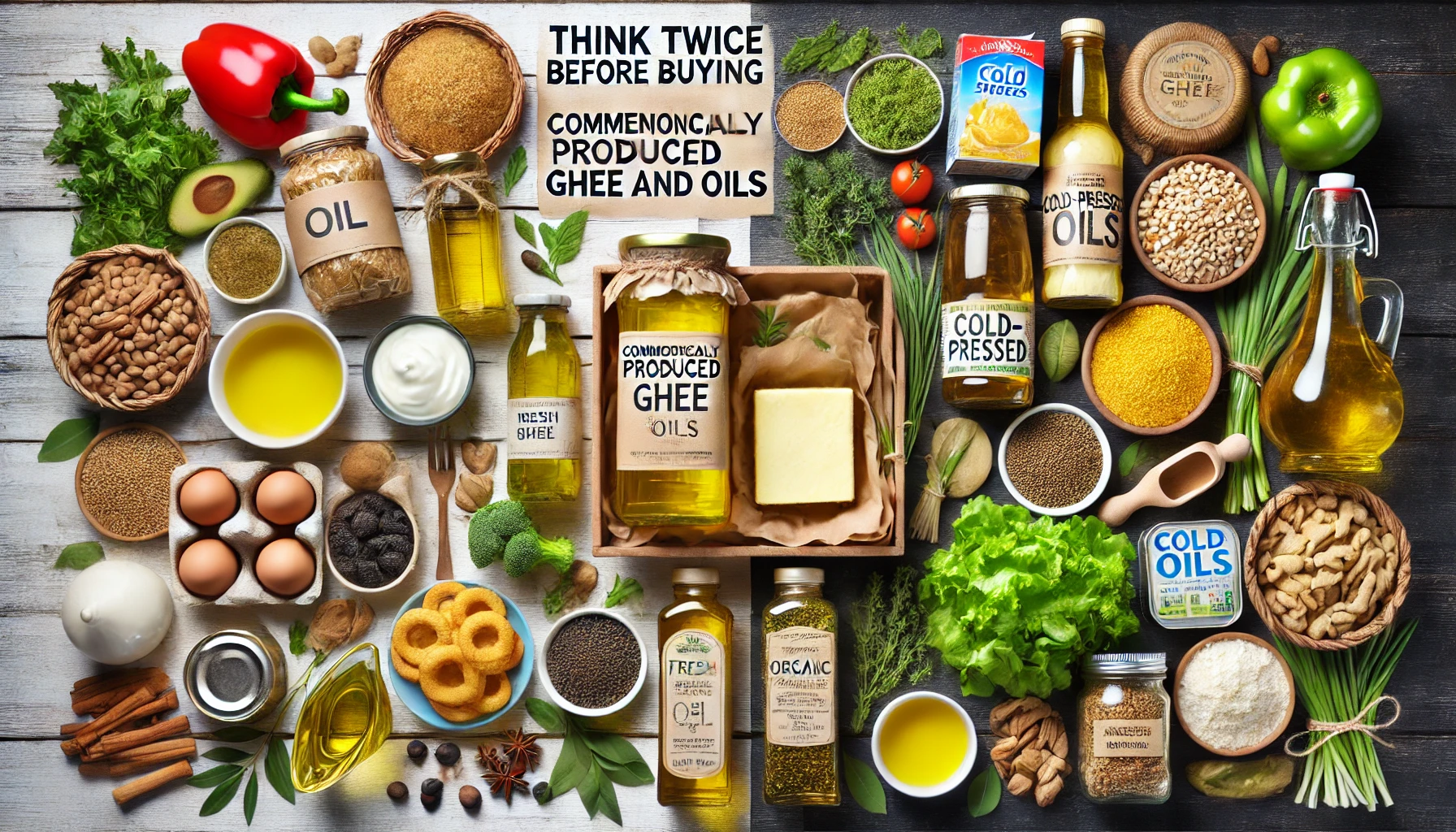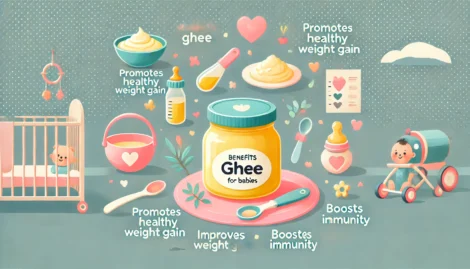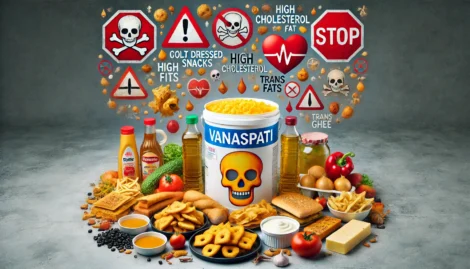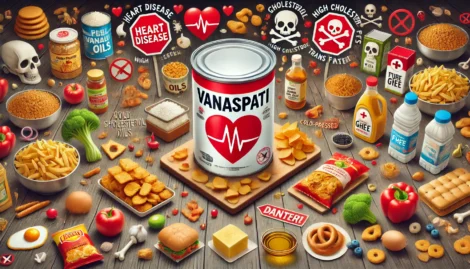- You have no items in your shopping cart
- Subtotal: ₹0.00

Why You Should Think Twice Before Buying Commercially Produced Ghee and Oils
In today’s fast-paced world, convenience often drives our purchasing decisions. Supermarkets and online stores are filled with mass-produced ghee and oils, which promise affordability and easy access. However, what most people fail to realize is that these mass-produced products might not be as healthy as they seem. The methods used in large-scale production can drastically reduce the nutritional value and purity of both ghee and oils, leaving behind products that are far from their traditional, nutrient-rich origins.
In this blog post, we’ll explore how mass production impacts the quality of ghee and oils, why traditional methods like cold-pressing and hand-churning are superior, and why you should think twice before opting for commercially produced options. Let’s dive into the hidden truths behind the labels and discover the real value of traditional ghee and oils.
Understanding the Differences in Production Methods
Before we delve deeper into the reasons mass-produced ghee and oils aren’t as healthy as traditionally prepared alternatives, it’s essential to understand the key differences between production methods.
1. Mass-Produced Ghee
Mass-produced ghee is typically made using machines in a highly mechanized process. This process includes:
- Skimming Cream from Milk: In mass production, ghee is made by skimming off cream from large quantities of milk using industrial separators. The cream is then boiled to extract butterfat.
- Industrial Heating: The butterfat is then heated at high temperatures to remove water content and separate the milk solids. This heat-intensive process may lead to nutrient loss.
- Homogenization and Standardization: To achieve consistency across batches, the ghee is often homogenized. While this ensures uniformity, it can reduce the natural goodness of the product.
- Preservatives and Additives: To extend the shelf life of mass-produced ghee, manufacturers may add preservatives and additives that are not required in traditional ghee-making.
2. Traditional Ghee (Bilona Method)
The traditional method of making ghee, particularly the Bilona method, is a slow and labor-intensive process that preserves the natural nutrients of the product. Here’s how it works:
- Churning Milk: In the Bilona method, ghee is made by churning whole milk or curd using a wooden churner (Bilona). This is done by hand, ensuring that the natural fat is preserved.
- Slow Cooking: Once the butter is separated from the churned curd, it is heated slowly on a low flame. This ensures that all the nutrients are retained and the ghee remains rich in vitamins like A, D, E, and K.
- No Additives or Preservatives: Since traditionally made ghee is naturally pure and has a long shelf life due to its lack of water content, there is no need for preservatives or additives.
3. Mass-Produced Oils
Much like ghee, mass-produced oils, particularly refined oils, undergo several stages of processing:
- Extraction through Heat and Chemicals: In industrial oil production, seeds or nuts are pressed at high temperatures. Solvents like hexane are often used to extract the maximum amount of oil from the seeds.
- Refining Process: The oil is then refined using chemicals to remove impurities, color, and odor. This process also strips away essential nutrients, antioxidants, and natural flavors.
- Preservatives and Additives: To stabilize the oils and increase their shelf life, manufacturers add preservatives and sometimes even artificial flavoring to mimic the taste of pure oils.
4. Cold-Pressed Oils
Cold-pressed oils are produced through a natural and traditional method:
- Slow and Gentle Pressing: In this method, the seeds or nuts are pressed slowly at room temperature using a wooden press. This ensures that the oil retains its natural nutrients, including essential fatty acids, vitamins, and antioxidants.
- No Chemicals or Heat: Unlike mass-produced oils, cold-pressed oils do not undergo chemical treatments or heat, preserving their purity and health benefits.
The Impact of Mass Production on Nutritional Quality
Nutrient Loss in Mass-Produced Ghee
Ghee, when produced through traditional methods, is an excellent source of fat-soluble vitamins (A, D, E, and K), but mass-produced ghee often loses these essential nutrients due to high-temperature processing. Here’s how:
- Vitamin Degradation: Excessive heat used in the industrial production of ghee can lead to the degradation of vitamins, particularly vitamin A and D, which are sensitive to heat.
- Loss of Antioxidants: Ghee is naturally rich in antioxidants, which help protect cells from oxidative damage. The high heat used in mass production can destroy these antioxidants, reducing the health benefits of the ghee.
- Altered Fat Structure: The fats in ghee are composed of beneficial short- and medium-chain fatty acids, which are more stable at low temperatures. When ghee is processed at high temperatures, these fats can become oxidized, potentially producing harmful byproducts.
Nutrient Loss in Mass-Produced Oils
The impact of mass production on oils is even more drastic. Here are some of the key ways that refining processes destroy the natural goodness of oils:
- Stripping of Essential Nutrients: The refining process strips away essential fatty acids like Omega-3 and Omega-6, as well as vitamins like E and K, which are naturally present in unrefined oils.
- Elimination of Antioxidants: Cold-pressed oils contain natural antioxidants like polyphenols and tocopherols, which have been shown to reduce inflammation and support heart health. Refining processes destroy these beneficial compounds, leaving behind oils that are nutritionally empty.
- Oxidation of Fats: High-temperature processing can oxidize the fats in oils, making them less stable and potentially harmful when consumed. Oxidized oils are linked to increased inflammation and a higher risk of chronic diseases like heart disease and diabetes.
Why Traditional Methods are Superior
Given the detrimental effects of mass production on the nutritional quality of ghee and oils, traditional methods like the Bilona process for ghee and cold-pressing for oils are far superior. Here’s why:
1. Retention of Nutrients
The slow and gentle methods used in traditional production processes ensure that the nutrients in ghee and oils remain intact. Cold-pressed oils, for example, retain their essential fatty acids, vitamins, and antioxidants, making them far healthier than refined oils.
2. No Harmful Additives
Traditional ghee and oils are free from harmful additives like preservatives, artificial flavoring, and chemicals used in refining processes. This means that you are consuming pure, natural products that have not been tampered with.
3. Enhanced Flavor and Aroma
One of the most noticeable differences between mass-produced and traditionally made ghee and oils is the flavor. Traditional ghee has a rich, nutty flavor, and cold-pressed oils retain their natural taste and aroma. This makes them not only healthier but also more enjoyable to cook with.
4. Better for Cooking
Traditional ghee and cold-pressed oils have higher smoking points, making them ideal for cooking at high temperatures. Refined oils, on the other hand, can break down at lower temperatures, releasing harmful compounds.
5. Ethical and Sustainable
Many mass-produced ghee and oil brands prioritize profit over quality, often cutting corners in their production processes. Traditional methods, however, are often more ethical and sustainable. For example, the cows used to produce ghee through the Bilona method are often grass-fed and treated humanely, and cold-pressing is a more environmentally friendly process that doesn’t rely on harmful chemicals.
Health Risks of Mass-Produced Ghee and Oils
1. Increased Risk of Chronic Diseases
The high heat and chemicals used in refining processes can create harmful compounds in oils, such as trans fats and oxidized fats. These compounds have been linked to an increased risk of chronic diseases like heart disease, diabetes, and cancer.
- Trans Fats: Many refined oils contain trans fats, which are harmful to heart health. Trans fats raise LDL cholesterol levels (the “bad” kind) while lowering HDL cholesterol (the “good” kind), increasing the risk of heart disease.
- Oxidized Fats: When oils are heated at high temperatures, they can oxidize, producing free radicals that damage cells and lead to inflammation. This can contribute to the development of chronic diseases like cancer and arthritis.
2. Hormonal Disruption
Mass-produced oils often contain chemical residues from the refining process, which can disrupt the body’s hormonal balance. Some of these chemicals act as endocrine disruptors, mimicking or interfering with the body’s natural hormones. This can lead to reproductive issues, thyroid problems, and even certain cancers.
The Environmental Impact of Mass Production
In addition to the health risks, mass-produced ghee and oils have a significant environmental impact. Industrial farming practices, heavy reliance on chemical fertilizers and pesticides, and the use of harmful solvents in oil extraction contribute to environmental degradation.
- Deforestation and Loss of Biodiversity: The demand for cheap, mass-produced oils has led to large-scale deforestation and the destruction of ecosystems. For example, palm oil production is responsible for significant deforestation in tropical regions, threatening endangered species and contributing to climate change.
- Water and Soil Pollution: The use of chemicals in mass-produced ghee and oil production can pollute water sources and degrade soil quality, making it harder for future generations to grow food sustainably.
Why You Should Choose GheeStore for Your Ghee and Oil Needs
At GheeStore, we believe in preserving the traditional methods of ghee and oil production to ensure the highest quality, purity, and nutritional value. Our ghee is made using the Bilona method, and our oils are cold-pressed using a wooden churner to retain their natural nutrients, flavor, and aroma.
What Sets Us Apart:
- Pure, Hand-Churned Ghee: Our ghee is made from grass-fed, indigenous cows, and is churned by hand using traditional methods. We do not use any chemicals, preservatives, or additives in our ghee, ensuring that you get the purest product possible.
- Cold-Pressed Oils: Our oils are cold-pressed using a wooden churner, ensuring that they retain their natural nutrients and health benefits. We offer a variety of oils, including groundnut oil, sesame oil, and coconut oil.
- Ethical and Sustainable: We prioritize the health of our customers and the environment by using ethical and sustainable practices in our production process. Our products are free from harmful chemicals and are packaged in eco-friendly materials.
Health Benefits of Choosing GheeStore:
- Better Heart Health: Our ghee and oils are rich in healthy fats, which can help lower cholesterol levels and reduce the risk of heart disease.
- Improved Digestion: Ghee is known for its digestive properties, and our cold-pressed oils are gentle on the stomach, making them ideal for cooking and consumption.
- Stronger Immune System: The antioxidants and nutrients in our ghee and oils support a healthy immune system, helping you stay strong and fight off infections.
Conclusion: Why You Should Think Twice Before Buying Commercially Produced Ghee and Oils
In conclusion, mass-produced ghee and oils may seem convenient and affordable, but they come at a cost to both your health and the environment. The high-heat processing, chemical additives, and loss of nutrients make these products far less healthy than their traditional counterparts. By choosing traditionally made ghee and cold-pressed oils, you can enjoy the full range of health benefits that these natural products have to offer.
At GheeStore, we are committed to providing our customers with the purest, most nutritious ghee and oils available. Whether you’re looking to improve your heart health, support your immune system, or simply enjoy better-tasting food, our hand-churned ghee and cold-pressed oils are the perfect choice. Make the switch today and experience the difference that traditional methods can make.



